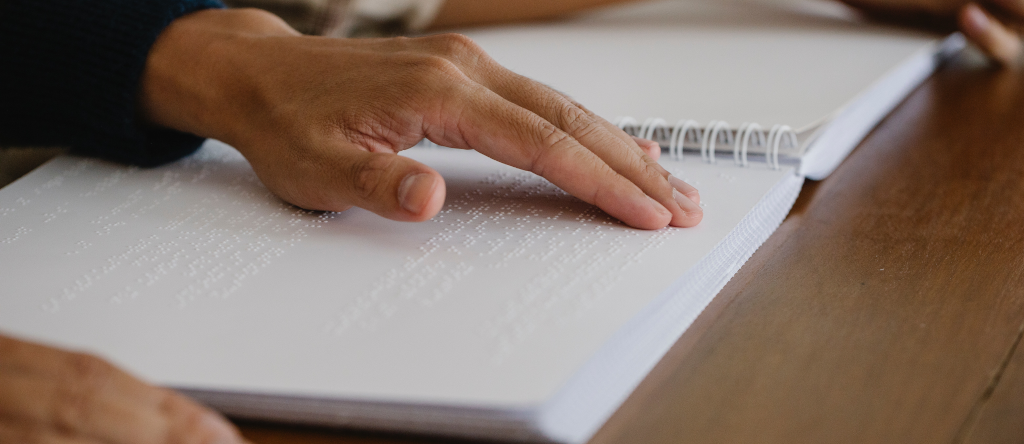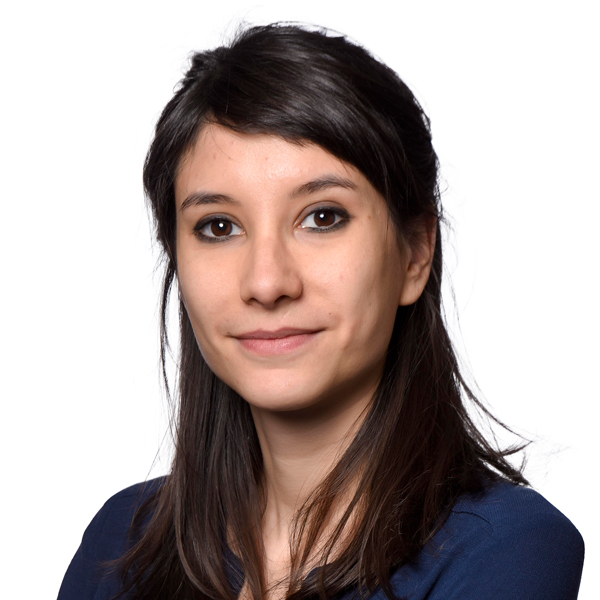The ONCE Foundation and the UOC continue working together to adapt teaching to the needs of disabled students
Subject: Multidisciplinary
As part of the agreement between the two organizations, it is now possible to request transcription of the University's learning resources into Braille.
Ten years ago, the UOC and ONCE laid the foundations for a cooperation agreement to facilitate equal, inclusive access to disabled students. One of the agreed (and recently ratified) policy lines is to provide educational materials to people with a serious or severe sight impairment. As a result of this agreement, UOC students affiliated with the ONCE can contact the ONCE directly to request transcription of the classroom's learning resources into Braille.
"With the adaptation of this material, we are diversifying the codes and languages of knowledge production and access," explained Dr Brígida Maestres, professor at the UOC's Faculty of Psychology and Education Sciences. The availability of accessible learning contents may contribute to these students' future access to a "quality job market" and, at the same time, "help diversify the languages, forms and procedures related with social life, work life and society in general, with a more universal design that generates less discrimination and disempowerment," Maestres added.
How are the contents adapted to Braille?
For this academic year, 17 UOC students have asked ONCE to adapt learning resources. Such requests must be made about 3-4 months before the resources are needed. When it receives a request, ONCE sends the content to a Braille editor, called Ebrai, to generate a file that can be printed. This video explains the complete adaptation process.
Learning resources in multiple formats
With the mission of enabling everyone to continue learning at all stages of their lives, the University's learning resources are available in a variety of formats. These are highly diverse, heterogeneous resources that can be adapted to a very broad range of learning needs and situations. For example:
-
The audiobook is very interesting for addressing the needs of disabled people. Using the DAISY format, it enables people to work with the audio content just as they would work with a book, turning pages or going to the next chapter with ease.
-
The HTML version enables searches to be made in the material's content.
-
The PDF format allows automatic reading using TTS (TextToSpeech) tools.
Before starting the year, the UOC's teaching staff commission the creation of new learning contents to be used at the University, which are made available in the above formats. This creation process is performed by the teaching staff with support from the Library and Learning Resources team and the eLearn Center's teaching consultants.
During the 2018/2019 academic year, 1,495 students with a recognized disability studied on an official bachelor's degree or master's degree programme at the UOC.
At the beginning of each semester, there is a period during which students can request adaptations of teaching or learning resources for:
- Adapting the pace of work.
- Replacing the oral part with a written adaptation in language courses.
- Making learning resources accessible.
For other questions or requests, contact the Help Service.
More than 66,000 accessible books
The ONCE Social Group has opened a library of accessible e-books. Including works by authors such as Stephen King, Nora Roberts, Jonathan Franzen, Hemingway or Mark Twain, it has the largest collection of books in Spanish, which can be downloaded in DAISY or Braille.
This initiative implements the Marrakesh Treaty for free sharing of adapted books among disabled people around the world, as embodied in the principles established by the World Intellectual Property Organization (WIPO).
Committed to the Sustainable Development Goals
Working to offer support and personalized attention to disabled students is a priority for aligning with the United Nations' Sustainable Development Goals (SDG) and advance toward inclusive higher education.



